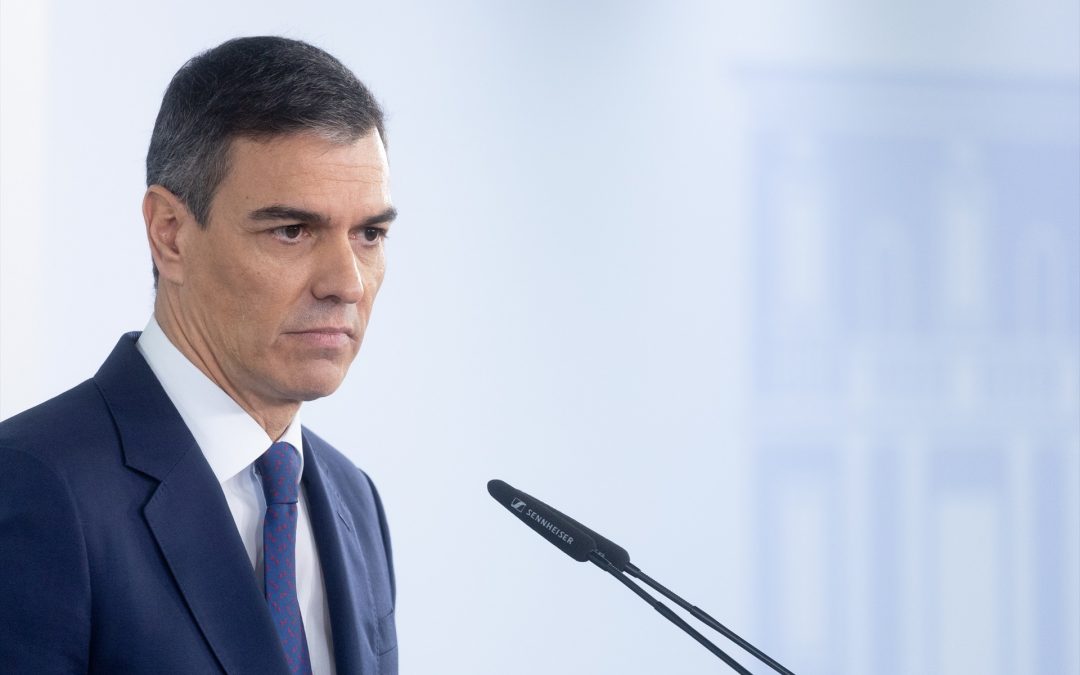Madrid/Brussels – The Prime Minister of Spain, Pedro Sánchez, has expressed support for appointing the candidate proposed by Italy, Raffaele Fitto, to the European Commission, stating that all member states of the European Union “have the right to have a commissioner” and it is up to each country to choose.
The socialist’s approval of the candidate of the Italian Prime Minister, Giorgia Meloni, could serve as a resolution to the current situation, after the PP threatened to veto the new college of commissioners if the candidacy of the Spanish Vice President Teresa Ribera was not withdrawn, criticizing her actions during the DANA that devastated much of the province of Valencia.
“All the member countries of the European Union have the right to have a commissioner, that is the case and it must be respected,” stated Sánchez at a press conference at the end of the G20 summit held in Rio de Janeiro (Brazil).
“That is what the treaties say, and that is what the European social democratic family does,” he indicated, distancing the possibility of the socialists trying to veto Meloni’s proposed candidate if the PP insists on removing Ribera.
In that sense, he explained that each country chooses the commissioner candidate and recalled that on other occasions they have had to vote on the candidate proposed by the Hungarian Prime Minister, Viktor Orbán. “This is what happens in Europe,” he pointed out. Therefore, he defends that no red line is crossed and simply respects what the treaties state.
Furthermore, he emphasized that it is “urgent” for Europe to have a community Executive “as soon as possible,” with full capacities to face the global challenges it must confront.
However, he pointed out that the current agreement in the European Union is among the three main political families, the conservatives, the socialists and democrats, and the liberals, and warned that it must be “preserved and fulfilled.”
In that sense, he noted that the socialists have supported all the candidates to the college of commissioners of the Popular Party, and therefore, he asks for “reciprocity” for them to also support theirs.
Nationally, Sánchez reproached the president of the PP, Alberto Núñez Feijóo, for mixing “the tragedy of Valencia with the negotiations in Brussels,” while indicating that the leader of the opposition “has every right to defend” the management of the president of the Valencian Community, Carlos Mazón, with the DANA, but “cannot do so against everyone and everything.” “He cannot do so against the State,” he emphasized.
According to Sánchez, Feijóo has questioned “what are the competencies of each establishment in an autonomous state” using the first vice presidency of the European Commission that has been recognized to Spain and to Teresa Ribera “against Spain and Europe.”
Finally, the Spanish executive chief demanded that Feijóo apply the “politics for adults in the first person” that he advocates. “Moderation, rationality, and a minimum of a sense of State. That is what I would ask for,” reiterated the Prime Minister, who indicated that the negotiations in Brussels “are progressing” and hopes that they will soon “bear fruit” because both Europe and Spain “need it.”
While Sánchez was speaking in Rio, a meeting began in Brussels among the leaders of the three main groups in the European Parliament: the German Manfred Weber (European People’s Party), Iratxe García (Socialists and Democrats), and Valérie Hayer (Renew Europe) to continue seeking a meeting point that unlocks the approval of the European Commission.
“We are in the process of negotiating and talking. We have had a very tough debate, well, in the PPE family about our values, about what we believe in and about sharing the concerns of our Spanish partners about Ribera,” said Weber to the press in Brussels, after leaving a meeting of his political family and before attending the meeting with García and Hayer.
The German conservative wanted to make clear that “at this moment there is no agreement between the political groups,” but contacts continue to evaluate the situation regarding the socialists’ position on Fitto and to address “all the issues on the table.”
Following the directives of the Spanish PP, the European ‘popular’ had set as a condition to evaluate Ribera that the minister responsible for Ecological Transition account to the Congress of Deputies, which will occur this Wednesday, and commits to resign if her management of the DANA is judicialized.
Waiting to know the outcome of the three-way talks, each family will hold their group meetings on Wednesday morning to examine the progress, if any, with the objective of reactivating the evaluation process of the six vice-presidents designated by Von der Leyen for her next Executive, including Ribera and Fitto.
The evaluations of each candidate by the competent committees is a necessary step for the Conference of Presidents, which brings together the leaders of all groups and meets this Wednesday at 17:00 to set the agenda of the plenary session of the next week, to complete the proposal that the plenary votes to approve or reject the College of Commissioners as a whole.
This vote will no longer allow approving or suspending commissioners individually and it is initially scheduled to take place on November 27 for the new community Executive to take office on December 1.
One of the keys to unlocking the process is to agree on a “pro-European” agenda for the new legislature in line with the agreement that last July allowed Von der Leyen to renew her mandate with the approval of the European Parliament thanks to the block support of these groups, although negotiation sources indicate that this time they are exploring transferring the commitment to a written document that, however, the ‘popular’ view with reservations. (November 19)
 go to the original language article
go to the original language article
